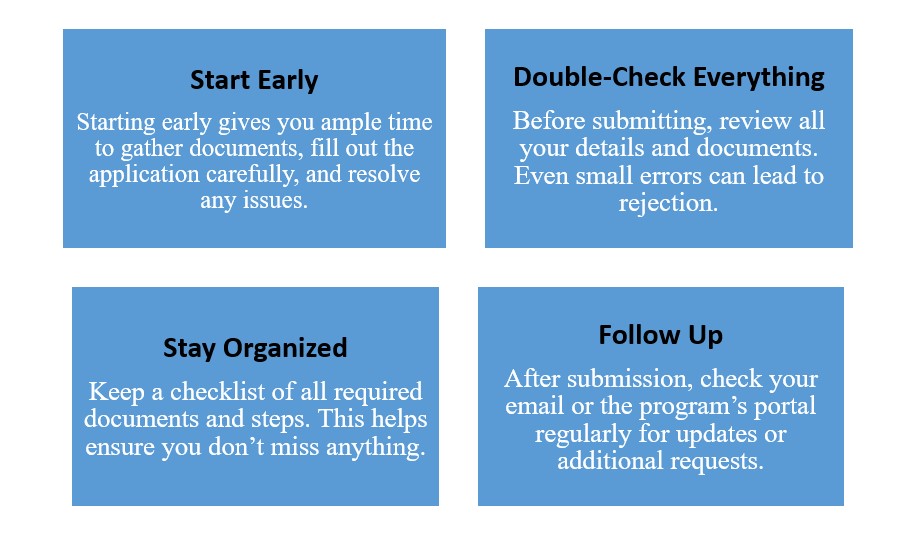In the current economy, every bit of financial assistance can make a big difference, especially for young people trying to save money for the future or minimize the burden of living expenses and educational bills.
According to UNICEF, 3.3 million Pakistani children are trapped in child labor, depriving them of their childhood, health, and education.
The unemployment rate in Pakistan is forecast to be 8.00% in 2024.
Furthermore, according to the Pakistan economic survey (2023-24), 4.5 million individuals are unemployed in the country, with the youth aged 15-24.
However, CM Punjab launched the Chief Minister Internship Program which offers 25000 monthly stipends to reduce poverty levels.
Are you facing unemployment?
This article will guide you through every step of the process.
So, register yourself in this internship program and make yourself independent.
Table of Contents
- What Is Monthly Stipend?
- Eligibility Criteria
- Step-by-Step Registration Process
-
- Online Registration
- Required Documents
- Submission Guidelines
- Important Deadlines
- Common Mistakes to Avoid
- Frequently Asked Questions (FAQs)
- Tips for Successful Registration
- Conclusion
What Is Monthly Stipend?
A monthly stipend is a financial support program offered by the government intended to help young people, especially those who are students, job searchers, or in need of financial assistance.
The purpose of this program is to give participants financial security so they may concentrate on their studies, professional development, or other personal objectives without having to worry about money all the time.
Why Government Take Initiative of Monthly Stipend
Governments often take the initiative of offering monthly stipends for several important reasons.
Here are some key reasons why governments might implement such a program:
1. Reducing Poverty
One of the main reasons for a monthly stipend program is to reduce poverty levels.
By providing a steady income, the government helps ease financial hardship and basic needs like food, shelter, and healthcare are met.
2. Encouraging Education and Skill Development
A monthly stipend helps students and young people to pursue school.
With the help of this financial assistance, they are able to pay for educational expenses like books, tuition, and transportation.
Moreover, they have time to concentrate on their studies without having to worry about money.
3. Supporting Unemployment and Job Transition
A monthly stipend might offer much-needed financial stability to people who are unemployed or changing careers.
With this support, people can concentrate on looking for a job, improving their skills, or investigating other career options without having to worry about their immediate financial situation.
4. Promoting Social Equity
Government monthly stipend programs help to reduce economic inequality by providing financial assistance to those who are most in need.
This may include downgraded groups, such as people with disabilities, single parents, or residents of economically disadvantaged regions.
5. Stimulating the Economy
Stipend beneficiaries boost local economies by using their money for products and services, particularly in places with little economic activity or significant unemployment.
6. Encouraging Civic Participation
By providing financial incentives, the government can encourage individuals, particularly youth, to get involved in community development projects, volunteer work, or other socially beneficial activities.
This contributes to the overall well-being of society.
7. Health and Well-being
In some cases, stipends are provided to support health and well-being, especially for individuals who are unable to work due to illness or disability.
However, these payments make sure that such individuals access necessary healthcare services which can lead to better health outcomes and a higher quality of life.
8. Reducing Crime and Social Unrest
Economic instability and poverty are often linked to higher crime rates.
By providing a stable source of income, the government helps reduce the incentives for criminal behavior and mitigate social tensions.
9. Addressing Demographic Challenges
In some regions, governments may introduce stipends to address specific demographic challenges, such as declining birth rates or an aging population.
10. Encouraging Innovation and Entrepreneurship
Some stipend programs are specifically made to support youth. As well as aspiring entrepreneurs who wish to launch their own companies or work on creative initiatives in order to promote innovation and entrepreneurship.
Eligibility Criteria
If you qualify for the stipend must know the eligibility criteria.
Applicants for the program must be between the ages of 18 and 25.
To apply, visit www.cmip.punjab.gp.pk and register.
Selected participants will be placed in top private sector organizations for their internship.
General Eligibility
| Criteria | Description |
| Age | Typically between 18 to 25 years old |
| Nationality | Must be a citizen of the country offering the stipend |
| Education Level | Requires at least high school completion |
| Employment Status | Unemployed or underemployed individuals are prioritized |
| Income Level | Must fall below a certain income threshold |
Other Requirements
- Enrollment in an Educational Institution: Some programs require you to be currently enrolled in a school, college, or university.
- Community Service: Certain stipends are tied to community service or volunteering efforts.
- Merit-Based: Some stipends are awarded based on academic performance or other achievements.
A Step-by-Step Registration Process
Once you’ve confirmed your eligibility, the next step is registering for the stipend.
Here’s how you can do it:
Online Registration

Upload Required Documents:
- ID Proof: National ID card, passport, or another form of identification.
- Educational Certificates: Your most recent academic transcripts or certificates.
- Income Proof: If required, provide proof of income or an affidavit if unemployed.
- Review and Submit: Double-check all the information you’ve entered. Make sure that all the documents are correctly uploaded. Once you’re satisfied, submit the application.
Required Documents
| Document Type | Description |
| Identification | National ID, passport, or other government-issued ID |
| Academic Transcripts | Latest educational certificates or transcripts |
| Proof of Income | Payslips, bank statements, or affidavit (if applicable) |
| Residence Proof | Utility bill, rental agreement, or any other proof |
| Photograph | Recent passport-sized photo |
Submission Guidelines
- Ensure All Details Are Accurate: Incorrect details can lead to application rejection.
- Submit Before Deadline: Late submissions are typically not accepted, so keep an eye on the deadline.
- Keep a Copy: After submission, download or print a copy of your application for your records.
Important Deadlines
Deadlines are crucial in the registration process.
Application processing will begin only after verification of the educational documents is finished, even if applicants’ documents have not yet been validated by HEC.
If the degree is not listed, applicants should contact the email provided or the call center for further assistance.
October 28, 2024, is the anticipated start date for registration, which ends on September 30, 2024.
The tentative start date for internships is November 1, 2024.
| Application Phase | Deadline Data |
| Anticipated Start Date for Registration | October 28, 2024 |
| Registration End Date | September 30, 2024 |
| Tentative Start Date for Internships | November 1, 2024 |
Some Common Mistakes to Avoid
Applying for the stipend carefully because a small mistake could cost you the opportunity.
Here are some common pitfalls to avoid:
1. Application Mistakes
- Incomplete Forms: Ensure every section of the form is filled out completely.
- Incorrect Information: Double-check names, dates, and other critical details.
- Missing Documents: Don’t forget to upload all the required documents.
2. Timing Issues
- Late Submission: Always submit your application well before the deadline to avoid last-minute issues.
- Ignoring Updates: Keep an eye on your email or the program’s website for any updates or additional requirements.
5 Important Tips for Successful Registration Process

Frequently Asked Questions (FAQs)
Can I apply if I am currently employed?
Yes, but it depends on your income level. Some programs are specifically for unemployed or low-income individuals.
How long does the registration process take?
The online registration process typically takes about 30-45 minutes if you have all the required documents ready.
What happens if I miss the deadline?
Unfortunately, late applications are usually not accepted. You’ll need to wait for the next application cycle.
Is the stipend taxable?
This depends on your country’s tax laws. It’s best to consult with a tax professional to understand your obligations.
Conclusion
Earning 25,000 monthly is a game-changer for many young people.
It can provide much-needed financial support and help with personal development without the constant stress of money.
You can successfully apply for a stipend by understanding the eligibility criteria, following the registration process carefully, and avoiding common mistakes.
By following the steps outlined in this guide, you’ll be well on your way to successfully applying for the stipend.
However, if you have any questions or need further assistance, reach out to the program’s support team without any hesitation.



